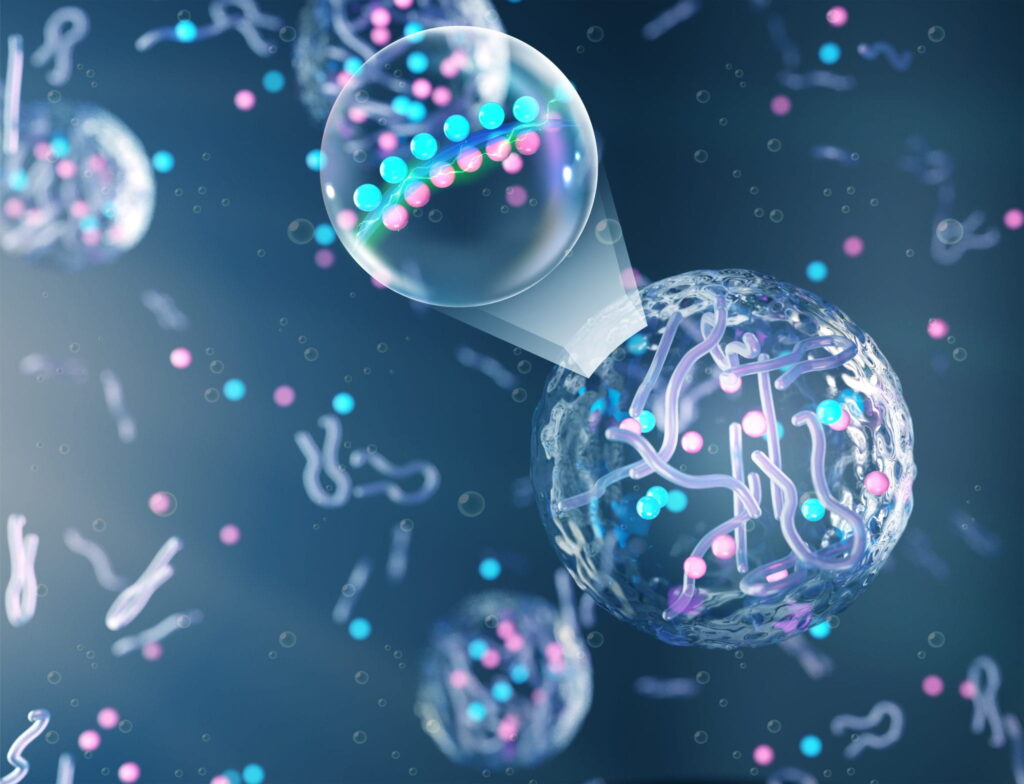
Biological condensates are structures in cells that appear like oil droplets floating in water, and they form compartments inside of cells without needing the physical boundary of a membrane. Researchers have increasingly found these globules of congregating proteins play a crucial role in cellular processes but had not identified ways in which they might affect biochemistry far from their physical structures.
Now, in a study published Sept. 10 in the journal Cell, researchers from Duke University and Washington University in St. Louis have shown that the formation of biological condensates affects cellular activity far beyond their immediate vicinity. By influencing electrical gradients within the cell and, in turn, the cellular membrane, they can affect global traits and outcomes such as resistance to antibiotics.
“Even a tiny number of these condensates centrally distributed well away from the cell membrane can create a chain reaction that can change this global property,” explained Yifan Dai, an assistant professor of biomedical engineering and part of the Center for Biomolecular Condensates at WashU’s McKelvey School of Engineering. Dai conducted the research as a postdoctoral researcher at Duke. “This paper shows there is no escape from these effects. As long as these tiny globs form, many things are influenced, even gene regulation in a global scale.”
Read more on the McKelvey Engineering website.


